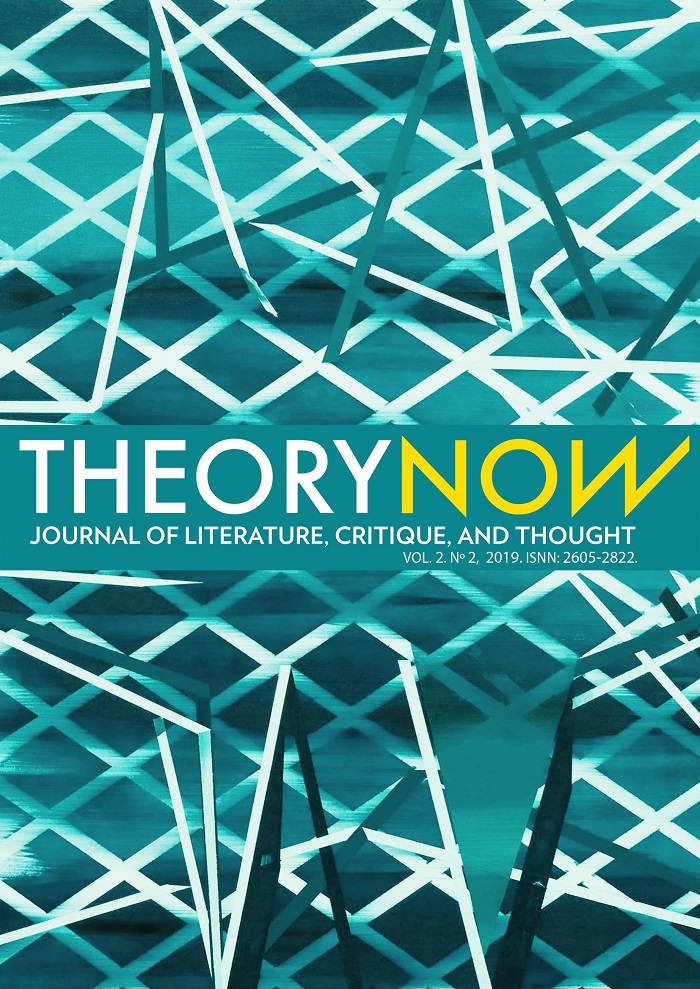Neo historical fiction: David Mitchell’s take on adventure, empire and the exoticization of the past
DOI:
https://doi.org/10.30827/tnj.v2i2.9554Keywords:
Neo-historical novel, Historical Romance, David Mitchell, Exoticism, The Thousand Autumns of Jacob de ZoetAbstract
This essay is concerned with a new conception of historical fiction that emerged in the British literary scene at the turn of the 21st century, and which Elodie Rousselot has termed neo-historical, having developed on premises similar to neo-Victorian fiction. This variety embraces a narrative realist mode and participates in the taste for popular engagement in public history. The analysis departs from a consideration of the implications of these critical approaches to historical fiction, in as much as they move backwards, beyond their postmodern foundations, and intersect with the genre of historical romance. This article uses David Mitchell’s The Thousand Autumns of Jacob de Zoet(2010) as a case-study in the light of Mitchell’s own conceptualization of the genre of historical fiction. The novel combines a meta-realist approach with the exoticisation of the past and the exploration fictional subjectivities and an awareness of post-imperialist concerns in a globalized world.
Downloads
References
Beasley, William G. The Japanese Experience. A Short History of Japan. London, Phoenix Press, 1999.
Bergmann, Ina. “The New Historical Fiction: Between Tradition and Innovation”. In Cameron, John ed. Narrative and the Essence of History. Essays on the Historical Novel, John Cameron (ed.). Newcastle upon Tyne, Cambridge Scholars Publishing, 2012.
Boccardi, Mariadele. The Contemporary British Historical Novel. Representation, Nation and Empire. London, Palgrave MacMillan, 2009.
Byatt, Antonia S. On Histories and Stories. Selected Essays. Cambridge, Harvard University Press, 2000.
Danytė, Milda. “National Past / Personal Past. Recent examples of the Historical Novel by Umberto Eco and Antanas Sileika”. Literatūra, vol. 49, no. 5, 2007, pp. 34-41.
Dillon, Sarah. David Mitchell. Critical Essays. Canterbury: Gylphi Limited, 2010.
Eve, Martin P. Literature Against Criticism: University English and Contemporary Fiction in Conflict. Open Book Publishers, 2016.
Foucault, Michel, The History of Sexuality. An introduction. Vol.1 Trad. Robert Hurley. New York: Vintage Books, 1990 (1978).
Fowles, John. “Notes on an Unfinished Novel”, The Novel Today. Malcolm Bradbury (ed.), Manchester, Manchester University Press. 1977, pp. 136-50
Frye, Northrop. “The Mythos of Summer: Romance” Modern Genre Theory. David Duff (ed.) London, Routledge, pp. 98-118.
Gamble, Sarah 2009 “You cannot impersonate what you are: Questions of Authenticity in the Neo-Victorian Novel,” Lit: Literature Interpretation Theory, 20:1-2, pp. 126-140.
Goodman, Grant K. Japan and the Dutch, 1600-1853. Richmond, Curzon Press, 2000.
de Groot, Jerome. The Historical Novel. London and New York, Routledge, 2010.
____. Consuming History. Historians and Heritage in Contemporary Popular Culture, London and New York, Routledge, 2016.
Harris, Katharine ‘Part of the project of that book was not to be authentic’: neo-historical authenticity and its anachronisms in contemporary historical fiction” Rethinking History. Vol. 21, 2017, pp. 193-212.
Huggan, G. The Postcolonial Exotic: Marketing the Margins. London and New York, Routledge, 2001.
Hughes, Helen. The Historical Romance. London, Routledge, 1993.
Hutcheon, Linda A Poetics of Postmodernism. London, Routledge,1988.
Jameson, Fredric. Postmodernism or the Cultural Logic of Late Capitalism. London, Verso, 1991.
Jenkins, Keith. Rethinking History, London and New York, Routledge, 1991.
Kohlke, Marie L. “Into History through the Back Door. The ‘Past Historic’ in Nights and the Circus and Affinity. Women: a Cultural Review. N15, 2004, pp.153-66.
Larsonneur, Claire. “Revisiting Dejima (Japan): from Recollections to Fiction in David Mitchell’s The Thousand Autumns of Jacob de Zoet". SubStance, n.136 Vol. 1, 2015, pp. 136-147.
______.“Weaving myth and history together: illustration as fabrication in David Mitchell’s Black Swan Green and The Thousand Autumns of Jacob de Zoet.” Image and Narrative Vol. 17, No.2, 2016, pp. 24-33.
Lukács, Georg. The Historical Novel. Lincoln and London, University of Nebraska Press, 1962.
Mitchell, David. 2010 The Thousand Autumns of Jacob de Zoet, London: Sceptre.
O’Donnell, Patrick. A Temporary Future: The Fiction of David Mitchel New York and London, Bloomsbury Academic, 2015.
Rousselot, Elodie (ed.). Exoticizing the past in Contemporary Neo-Historical Fiction. Houndmills and New York, Palgrave Macmillan, 2014.
Stanlaw, James. Japanese and English Language and Culture in Contact. Hong Kong, Hong Kong University Press, 2004.
Wesseling, Elisabeth. Writing History as a Prophet. Postmodernist Innovations of the Historical Novel. Amsterdam / Philadelphia: John Benjamin’s Publishing, 1991.
White, Hayden Metahistory: The Historical Imagination in Nineteenth-Century Europe, Baltimore and London, John Hopkins University Press, 1973.
Winterson, Jeanette The Passion. London, Penguin, 1987.
Downloads
Published
How to Cite
Issue
Section
License
Theory Now. Journal of Literature, Critique, and Thought is an immediate open-access publication which is available at no cost for readers and authors alike. Authors are not charged any kind of fee for the editorial processing of their articles. Reading, downloading, copying, distributing, printing, searching, linking or reusing all published articles for non-commercial uses is allowed on the condition of citing the author, the journal and the editing body. All intellectual material published in this journal is protected under a Creative Commons Attribution-NonCommercial 3.0 Spain license.
Dissemination of the articles in social (Facebook, Twitter, Linkedin, etc.) and scientific networks (ResearchGate, Academia.edu, etc.), public repositories at universities and other institutions, blogs, personal or institutional websites, Google Scholar, ORCID, ResearchID, ScopusID, etc. is strongly encouraged. In all cases, the intellectual property of the articles and any possible monetary profits derived from them belong exclusively to the authors.













